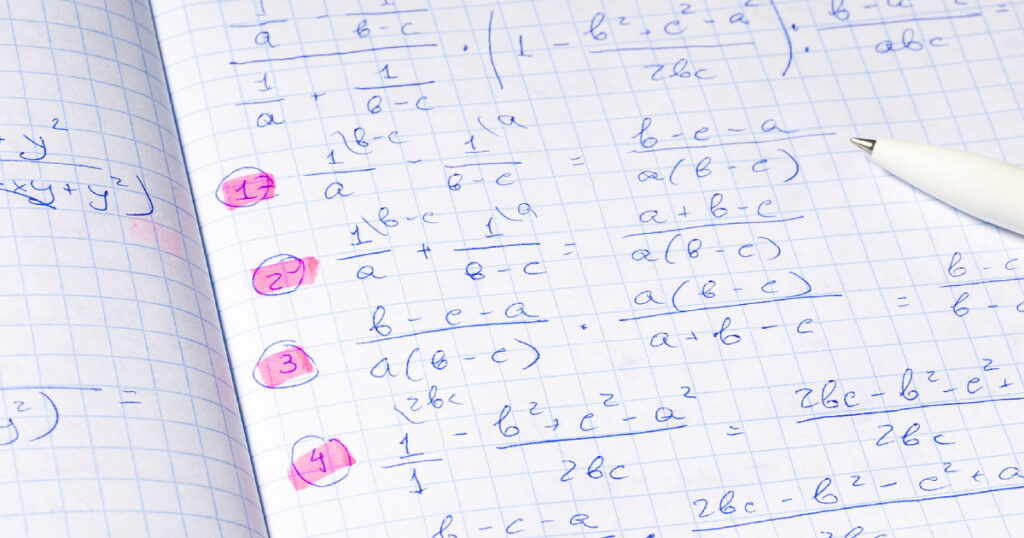
Algebra often feels like a steep learning curve for many students beginning their secondary school journey. Yet, it serves a critical purpose far beyond simply solving equations or working with unknowns. Algebra is not just another chapter in the maths syllabus—it is the very framework upon which the rest of secondary mathematics is built. From linear graphs to trigonometry, algebraic thinking forms the backbone of nearly every topic. Understanding why algebra is so central can help students approach it with a fresh perspective and greater confidence.
Algebra introduces abstract thinking early on
The transition from primary to secondary school maths involves a noticeable shift—from arithmetic to abstract reasoning. Algebra is where this shift becomes most apparent. Instead of dealing only with fixed numbers, students start working with variables, expressions, and equations. This leap into abstraction trains the brain to think flexibly, anticipate patterns, and make generalisations—skills essential not just in mathematics but in science and logic-based subjects too.
This foundation proves especially beneficial for students who are also tackling subjects like lower secondary science tuition in Singapore, where applying formulas and interpreting variables becomes routine.
Equations are the building blocks of problem-solving
Many secondary maths problems, from the simplest to the most advanced, ultimately boil down to equations. Whether it’s solving for the value of x or balancing chemical equations in science, the concept of maintaining equality is fundamental. Students who grasp this early on through algebra find it easier to tackle more complex problems across different topics.
Furthermore, algebra trains students to apply structured methods to break down problems—a valuable skill that promotes confidence and accuracy during exams. This structured thinking is what many students struggle with when they first encounter topics like geometry or probability, which are easier to navigate when one has mastered algebraic reasoning.
Graphs, functions and coordinate geometry depend on algebra
Once students reach topics like coordinate geometry or graphs of functions, algebra reappears—this time in visual form. Understanding how equations translate into lines or curves on a graph requires a strong command of algebra. For example, interpreting the slope of a linear graph or the turning point of a quadratic function is only possible when a student can manipulate algebraic expressions fluently.
This connection between numbers and visuals helps develop mathematical intuition, where students can not only calculate answers but also understand what they mean in context. It’s no coincidence that students who are confident with algebra often perform better in graph-based questions, which are increasingly common in secondary exams.
Higher-level topics build directly on algebraic principles
As students progress to upper secondary levels, topics become more complex. Subjects like algebraic manipulation, indices, surds, and simultaneous equations don’t just stand alone—they underpin areas like trigonometry, calculus (at A-level), and even statistics. Without a firm grounding in algebra, these subjects can seem disconnected or overly technical.
A student who understands algebra sees the thread that links one topic to another. For instance, simplifying a trigonometric expression often requires the same skills used to simplify algebraic fractions. Solving real-world problems in additional maths—like calculating speed or distance using formulae—relies heavily on forming and rearranging algebraic expressions.
Algebra boosts confidence across subjects
Algebra does more than prepare students for maths—it enhances their confidence across the curriculum. The logical approach taught in algebra helps students tackle science subjects more effectively, especially physics and chemistry. It’s not uncommon for a teacher to observe that students with a strong algebra foundation perform better in science as well, since both require a structured and formula-driven mindset.
Parents often notice this crossover benefit when they enrol their children for lower secondary science tuition, as students who have mastered algebra tend to adapt more quickly to the demands of secondary-level science, especially when moving from lower to upper secondary.
A strategic focus on algebra yields long-term gains
Rather than treating algebra as just another topic to pass, students should see it as a long-term investment. Time spent mastering algebra in lower secondary will pay dividends in upper secondary and beyond. It lays the groundwork for more advanced studies and opens up pathways to fields like engineering, computer science, economics, and data analysis.
The good news is that algebra is highly learnable, especially with the right guidance and consistent practice. Students who struggle at first often make significant improvements once they understand the logic behind the steps. As their confidence grows, so does their ability to take on more challenging mathematical tasks.
Conclusion
Mastering algebra is not just about passing a chapter test—it’s about building the cognitive skills needed to excel across all areas of secondary maths and even science. From graphs and geometry to statistics and trigonometry, algebra plays a foundational role that cannot be overstated. For students who want to stay ahead and approach maths with confidence, building a strong algebraic foundation is the smartest first step.
To support your child in developing these crucial skills, explore the tailored programmes at Ace Academia, where experienced ex-MOE teachers use personalised strategies to make mastering algebra—and the subjects that rely on it—an achievable and rewarding journey.
Get in touch with us on WhatsApp at +65 8866 2223 and find out how we can aid your child’s education now.




